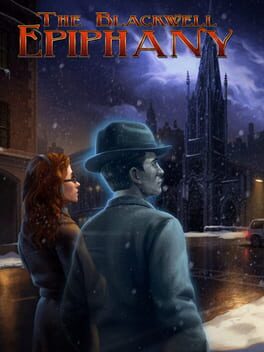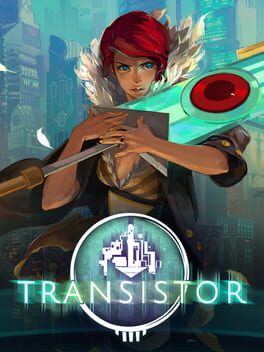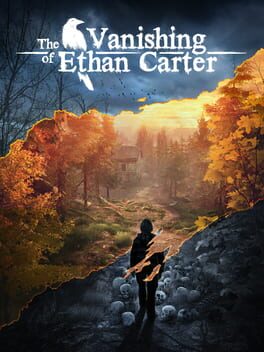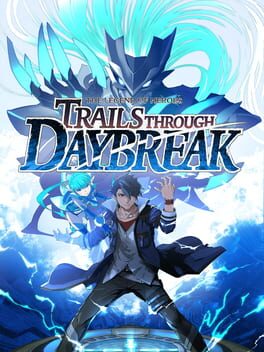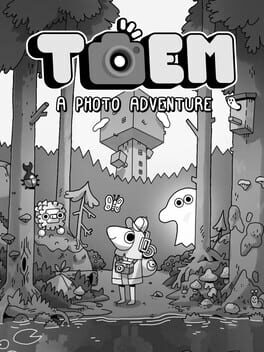mintcake
2023
"Are you rushing or dragging?"
The striking visual style makes a great first impression. Despite being super linear, the game still creates a sense of exploration which I appreciate immensely. I detest games like Devil May Cry (and more recent example, FF16) and their corridor linking combat arena structure. The little platforming sections, light puzzles, secret rooms, sidescrolling sections, traversal setpieces that Hi-Fi Rush constantly threw at me made me forget I was playing a character action game. Pacing is fantastic, always introducing new mechanics, and the game ends right where it needs to be, just before the experience gets stale. The combat makes you feel like you have musical superpower when it works, but I was seldom able to make it work. I'm a hopeless dragger lol. I had some small problems with the protagonist, mainly how him being an idiot from a 90s anime. It didn't help that the last Japanese game I played was Xenoblade Chronicles 3, where the protagonist put up his best Socrates impression.
The striking visual style makes a great first impression. Despite being super linear, the game still creates a sense of exploration which I appreciate immensely. I detest games like Devil May Cry (and more recent example, FF16) and their corridor linking combat arena structure. The little platforming sections, light puzzles, secret rooms, sidescrolling sections, traversal setpieces that Hi-Fi Rush constantly threw at me made me forget I was playing a character action game. Pacing is fantastic, always introducing new mechanics, and the game ends right where it needs to be, just before the experience gets stale. The combat makes you feel like you have musical superpower when it works, but I was seldom able to make it work. I'm a hopeless dragger lol. I had some small problems with the protagonist, mainly how him being an idiot from a 90s anime. It didn't help that the last Japanese game I played was Xenoblade Chronicles 3, where the protagonist put up his best Socrates impression.
I expected it to follow the storyline of Deception, in particular, the secret society, but it isn't the case, which is a shame because you'd think the last chapter of a five part series would reveal something bigger. Instead, it's mostly about personal tragedy. The story meanders a bit in the middle, but I'm pleased with the ending. This whole series feels like a trip to New York, but instead of the tourist sites, you visit the places normal New Yorkers live and work, and they all have stories to tell.
2014
While Bastion is hard carried by the art and sound design, Transistor has a lot more to offer.
The action RPG system mixed with real-time-with-pause mechanics took me some time to get used to. Once I did, I learnt to appreciate the depth of the skill combination system and the different play styles it provide. The game have small test levels that further challenge your understanding of the battle system.
The story is a simple one, but Supergiant is great at giving a classic tale a unique coat of paint. This time, the revenge story is set in a futuristic city that appears to be programmers' paradise. Those computer science language makes the game seems otherworldly, even though it doesn't develop anything new at its core.
The action RPG system mixed with real-time-with-pause mechanics took me some time to get used to. Once I did, I learnt to appreciate the depth of the skill combination system and the different play styles it provide. The game have small test levels that further challenge your understanding of the battle system.
The story is a simple one, but Supergiant is great at giving a classic tale a unique coat of paint. This time, the revenge story is set in a futuristic city that appears to be programmers' paradise. Those computer science language makes the game seems otherworldly, even though it doesn't develop anything new at its core.
2023
This review contains spoilers
The game's structure is similar to a new life. Maybe vignette life story is the new trend for indie narrative adventure game. While their brevity is not necessarily a bad thing, I think they could achieve much more if they were just a bit longer. Having had the experience of being an outsider myself, I can relate to the story. Like Venba, I decided to go home. At least I won't feel regret for not spending time with my family before it's too late. For those who stay, never forget where you come from because others won't. Indian food looks absolutely divine in this game, you can practically smell the spices.
2019
At the start it's a nice little puzzle game with intuitive and imaginative rule set. Then it starts to throw all logic out of the window, encouraging you to think outside the box, or in my case, frantically clicking on everything to see what works like playing an old school point-and-click. Finally it turns into a therapy session that I wouldn't pay for.
New engine, new graphics, new mechanics. Pretty ambitious game in a series known for its conservatism. The biggest improvement, without a doubt, is the elimination of loading screen. Every time I enter a new building without being greeted with a black screen, a warm feeling fizzled in my heart. But Falcom took it even further. Switching between exploration and combat is now instant. With one push of a bottom, you are in turn-based combat, with the position of your team and the enemies retained. I wish more RPGs adapt this feature. Reverie already showed how the new engine enables more sophisticated cutscene direction, but the new found cinematic capability really shines through in Kuro. Better direction and whole new level of details in character models elevate the presentation to stand toe-to-toe with contemporary anime JRPGs. We all know how much Kondo loves dancing scene in his game. This time we finally have legitimate dance performance.
The new cast is a breath of fresh air that blows away the staunch of harem bullshit that had been plaguing the series for a decade. All of them, including the main protagonist, are likeable and seem to have further part to play in the saga. Usually each arch starts slow, but this one dumps the kitchen sink in your face right from the start. Some of the characters feel like they should be reserved for act 2. As a result, the game is bigger than it should be. I guess it's better than stretching it into two games, but seriously, a bit over the top for a mafia shakedown.
The new cast is a breath of fresh air that blows away the staunch of harem bullshit that had been plaguing the series for a decade. All of them, including the main protagonist, are likeable and seem to have further part to play in the saga. Usually each arch starts slow, but this one dumps the kitchen sink in your face right from the start. Some of the characters feel like they should be reserved for act 2. As a result, the game is bigger than it should be. I guess it's better than stretching it into two games, but seriously, a bit over the top for a mafia shakedown.
Feels like a psychedelic trip, with a hint of conservationism theme. LucasArts games all have a degree of zaniness with them, but none as deconstructive, as whimsical as this one. In that regard, if it gets rid of some of the obtuse puzzles, it can pass for a modern "artsy" indie adventure game. On the other hand, some content is culturally insensitive to say the least, a modern "artsy" videogame journalist might call it downright racist. It's a game that is both ahead of its time, and a product of its time.
2021

